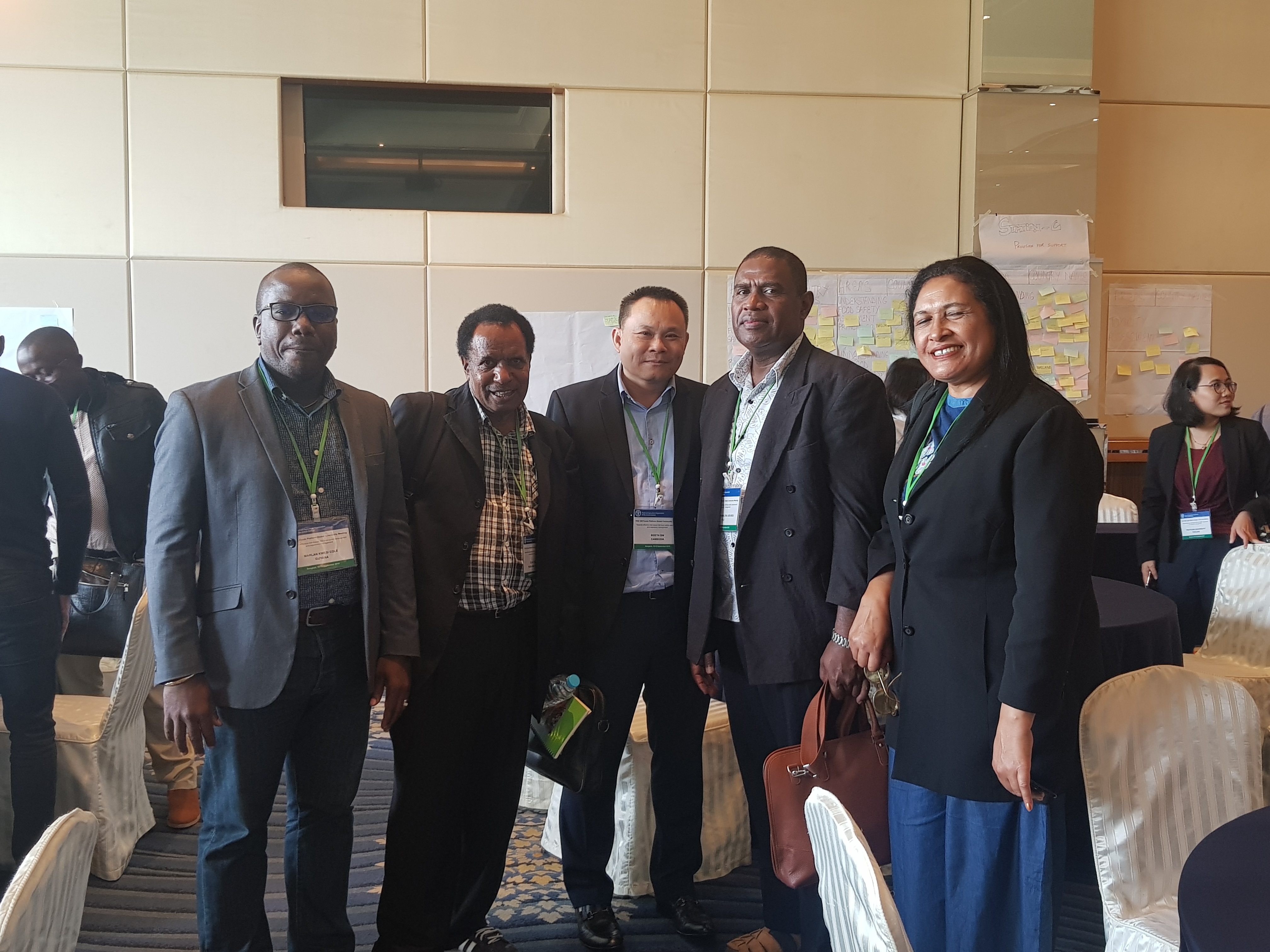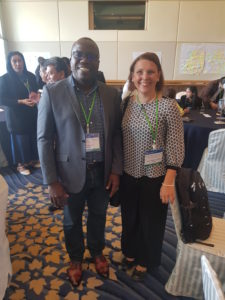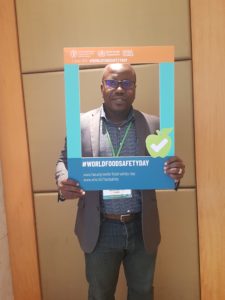Prepared by: Marlan Cole- Director Food and Drug Department (GA-FDD)
| Activity/Event:
Dates:10-13, September 2019
Place:Royal Orchid Sheraton Hotel and Towers, Bangkok, Thailand.
|
| Objectives:
1. To establish contacts and build networks that can enable effective information sharing of technical information.
2. To increase awareness of the benefits of platform use to increase volume of submission and promote its use as a resource.
3. To enhance the ability of countries to conduct, interpret and analyze GM foods safety assessment in accordance with the Codex Guidelines.
|
| Justification
Currently there is a lack of international consensus among stakeholders in the global community on how to approach conducting Genetically Modified (GM) food safety assessment as adopted by the Codex Guidelines. In addition the global community also lacks consensus on the technical interpretation of the Guidelines.
This meeting therefore can attempt to assist developing countries to better understand GM food safety assessment and enhance there capabilities and capacities in regard to the following:
1. Assessment, analysis and interpretation of country’s GM food information. 2. Assistance to authorities with decision making of GM food. 3. Present the FAO – GM food Platform as a resource portal to help bridge the knowledge and experience GAP among countries. 4. The sharing of lesson learn among advance and developing countries with the GM food assessment and the information will be retired to being strictly technical where no policy formulation, decision making or resolution will be had.
Participants overview:
|
| Summary – 4 Days Meeting in Thailand
· Day 1 – Ms Kundhavi Kadiresan, Assistant Director General, FAO Regional Office for Asia and the Pacific welcomed the participants and emphasize the importance of international collaboration in this scientific development.
· Mr. Andrés Murchison, the Secretary of Food and Bio-economy of the Ministry of Livestock and Fisheries of the Argentine Republic delivered the keynote address, he highlighted the value of international data-sharing on GM food safety assessment.
Day 2 – Dr. Hiroshi Yoshikura of Japan and former Chairperson of the Codex Inter-governmental Task Force on food derived from Biotechnology, explained the basis of the Annex 3 of the Codex Guidelines which triggered the development of the FAO GM Foods Platform. He stated that in his opinion “we don’t have a trade problem now because the Platform’s existence.”
|
| Key Outcomes – Recommendations/follow-up:
Seven take-home messages:
2. Community = opportunity for trust development, data sharing, starting point to build trust, active interaction for community members. 3. Advocacy is a challenge, but we should not give up because of scientific advancement, efforts are statble and continuous, informed policy makers are also consumers. 4. Trade issue vs. safety issue, with effective assessment LLp will be only a trade issue and not safety, platform reduce trade issues, sharing of assessment information would remove trade issues. 5. Platform is the best place to initiate collaboration; contact info is already online and is accessible for all Focal Points. Face to face meeting as the one hosted by FAO is the best way to learn from the experiences of others. Community can effectively grow thereafter with regular interaction. .
7. Facilitating effective partnerships is a welcome and an activity supported by the FAO.
Follow-up actions
|
| Next Step and Follow-Up action Specific to Guyana.
1. Sensitization to the general public on the existence, purpose and objective of the GM Platform administered by the FAO. 2. Hot local or regional training of GM LLP Assessment by resourceful Platform members countries such as Argentina, Canada or the USA. 3. Establish regulatory guidelines / legislation for GM food in Guyana. 4. Establish intra-regional collaboration among Caribbean Countries to conduct joint activities.
|






